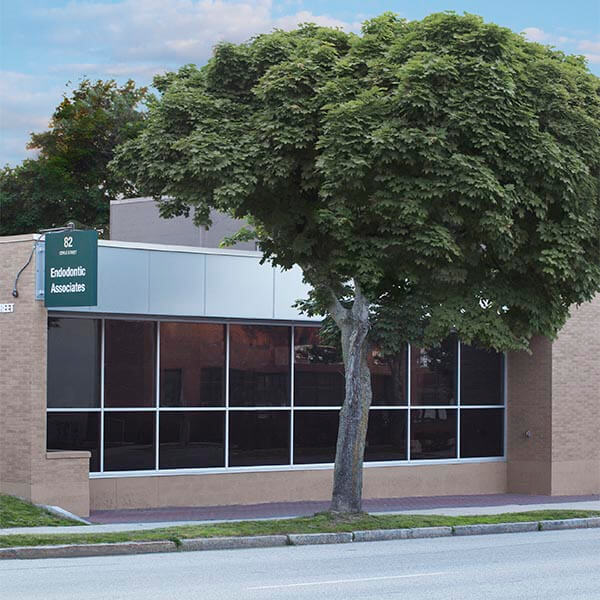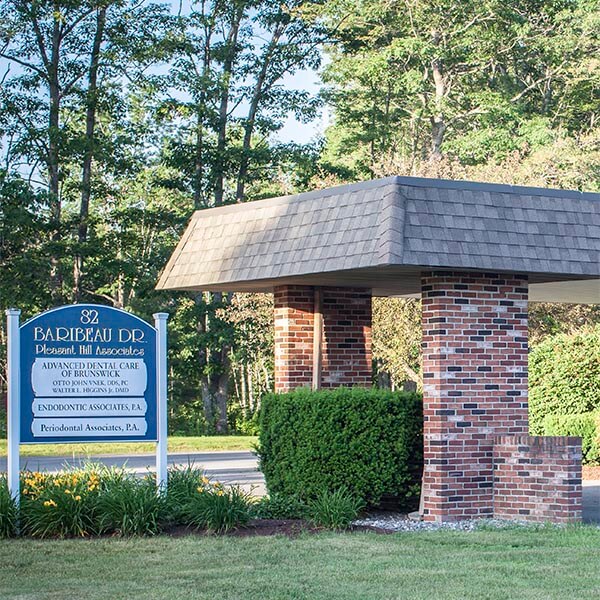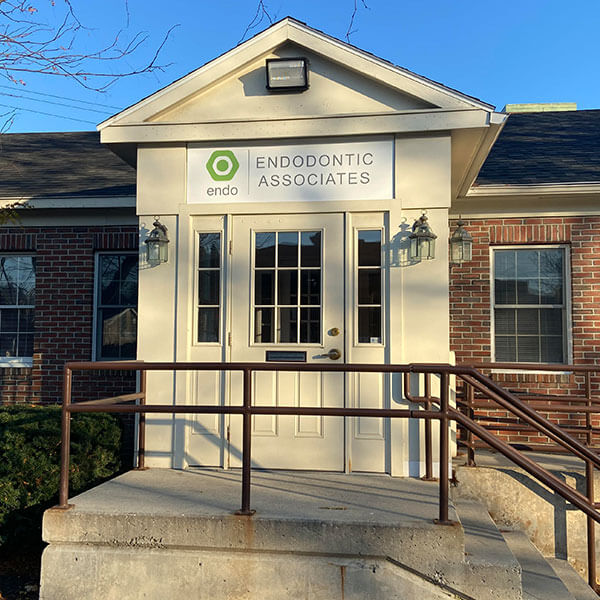Endodontic Associates, P.A.
Frequently Asked Questions
What is a root canal?
The actual procedure is called root canal therapy. All teeth have a canal system (the tooth is hollow) that contains blood vessels, nerves, and other tissues that were important when the tooth was developing. This collection of various tissues is called the dental pulp. In an adult, the dental pulp serves as a warning system when a cavity develops, sensitivity to sweets for example. The pulp is not necessary for the tooth to function. Root canal therapy is performed when the pulp is diseased or infected. During the procedure the canals are accessed, debrided, sterilized, and sealed with a root filling.
Why do I need a root canal?
There are three main reasons why root canal therapy is performed:
- The “nerve” is dying: The dental pulp can experience a loss of blood supply, which leads to the necrosis or “death” of the pulp. This occurs when a tooth has a large cavity for example and it can be extremely painful. Antibiotics and pain medications are generally not helpful in this circumstance. Only root canal therapy or extraction of the tooth will resolve the discomfort.
- Dental Abscess: If the pulp tissue has necrosed and the root canal has not been performed, the tooth is prone to infection. Once infected, only root canal therapy or extraction will resolve the problem. Symptoms vary from patient to patient, ranging from no symptoms at all (your dentist tells you that infection was noted on a routine dental x-ray) to severe swelling and extreme pain requiring immediate treatment and possible surgical intervention.
- The tooth is badly broken down and the dentist needs to place a post inside the tooth to help retain a filling or crown.
Can I take an antibiotic to make the problem go away?
Antibiotics will resolve the pain and swelling associated with an acute dental infection. The symptoms will return at some point because the source of the infection has not been treated. To treat the problem permanently, an antibiotic would have to be carried the source (the infected root canal system) of the problem by blood circulation. Unfortunately, once a tooth is infected it has lost its blood supply and therefore antibiotics cannot get inside the tooth’s root canal system to eliminate the infection. The only means of doing so is through the cleaning and sterilizing process of root canal therapy or removal of the tooth.
What is an Endodontist?
An endodontist is a dental specialist who performs procedures related to the root canals of teeth, from the routine to the very complex. In order to become an endodontist, a dentist must complete an additional 2-3 year residency program after dental school. Endodontists are thoroughly trained in dental anatomy, diagnosis of orofacial pain, and in the use of the surgical operating microscope (see photo). Microscopes are used almost exclusively by endodontists for visualization of intricate root canal anatomy at up to 21X. The additional training and instrumentation ensures that root canal related treatments are performed to the highest level of care.
Is the root canal procedure painful?
Root canal therapy does not have to be unpleasant. The key to a painless procedure is ensuring the patient is adequately anesthetized (numb). Those patients who have had unpleasant experiences in the past, most likely, were just not numb enough. When a tooth is painful to begin with, it can make for a very uncomfortable procedure. Because endodontists deal with patients who come in with existing toothaches everyday, we are proficient at getting patients properly anesthetized. The vast majority of our patients find that the procedure is not painful. In fact, it is not uncommon to have patients fall asleep during treatment.
How long does a root canal take to perform?
It depends on what tooth is being treated and if there are any complicating factors, but in general it takes a little more then an hour for a molar tooth once the patient is numb. Under some circumstances, it can take multiple appointments.
Will I be able to go to work after the procedure?
Some soreness is expected for 2-3 days following root canal therapy, but this should not prevent a patient for going about their daily activities. Typically, over-the-counter anti-inflammatory medications such as ibuprofen and naproxen are very effective at managing post-operative discomfort. Please follow any post-operative instructions given to you by your treating dentist.
Will my tooth be different after a root canal?
In order to perform root canal therapy a hole has to be drilled into the tooth. This results in a tooth that is more prone to fracture because of the loss of the additional tooth structure. That is why crowns are recommended on molar and premolar teeth after root canal therapy. The tooth will no longer feel hot or cold. The tooth maintains proprioception which is the ability to sense when something is between your teeth or when your teeth touch.
How long do root canals last?
The long-term success of root canal therapy depends on different factors. The first is how well the root canal system was cleaned. The microscope and other specialized instruments play a major role in this, as does the clinician’s knowledge of dental anatomy (i.e. how many canals to expect to find inside a specific tooth). The second factor affecting the success rate is the timely restoration of the tooth following root canal therapy with a permanent filling and a crown. And lastly, the patient should maintain adequate oral hygiene to prevent future cavities that can lead to a recontamination of the root canal system. Today’s root canal treated tooth will last as long as any of the patient’s other teeth.
Do root canal treated teeth cause other diseases?
Simply put, no literature exists that implicates root canal treated teeth as a cause of systemic disease. This idea comes from the 1920-30’s, when there was a prevalent theory that implicated not only root canal treated teeth but dentistry in general as the cause of many systemic diseases such as arthritis, intestinal disorders, and anemias. This led to a destructive form of dentistry in which extraction was considered the only treatment option in order to prevent or cure these systemic diseases. The theory was later disproved and rejected. Studies over the years have demonstrated that people with root canal treated teeth are no more likely to be ill then those without them. Unfortunately, some patients, physicians, and dentists still believe this theory is true. Recent attempts to reproduce the results of these early studies have failed to show a connection to systemic diseases. In re-evaluating the original studies, it is believed that the poor sanitary conditions and imprecise research methodology led to the flawed results. It is sad to think of the millions of unnecessary extractions that still occur because of this research.



